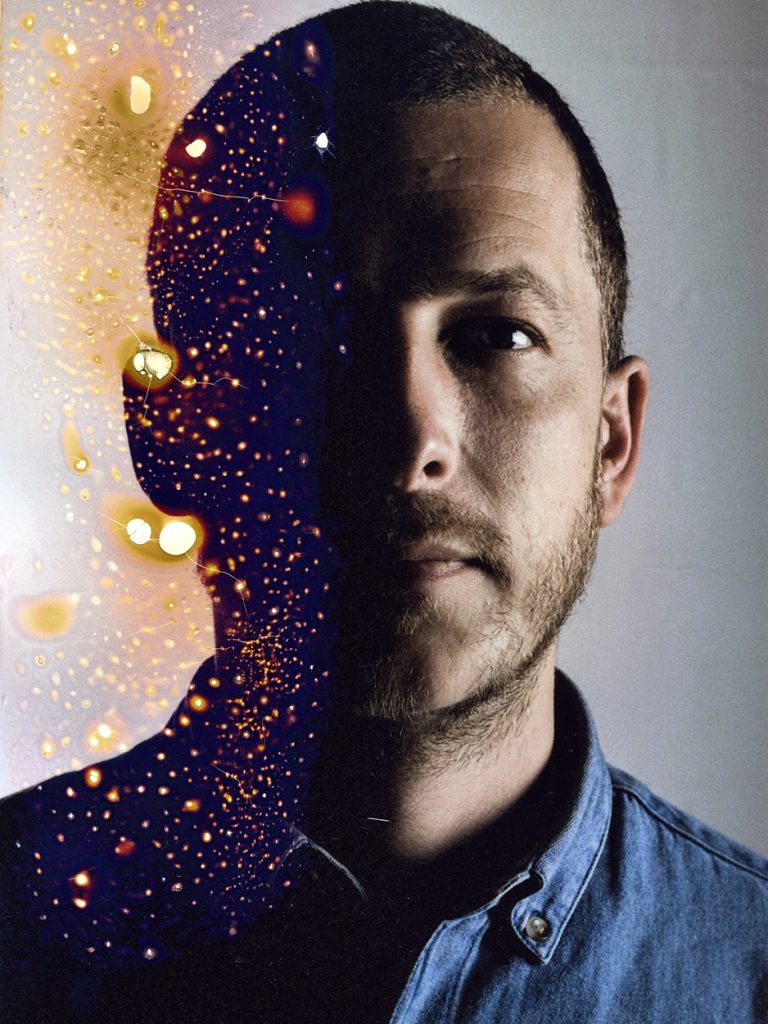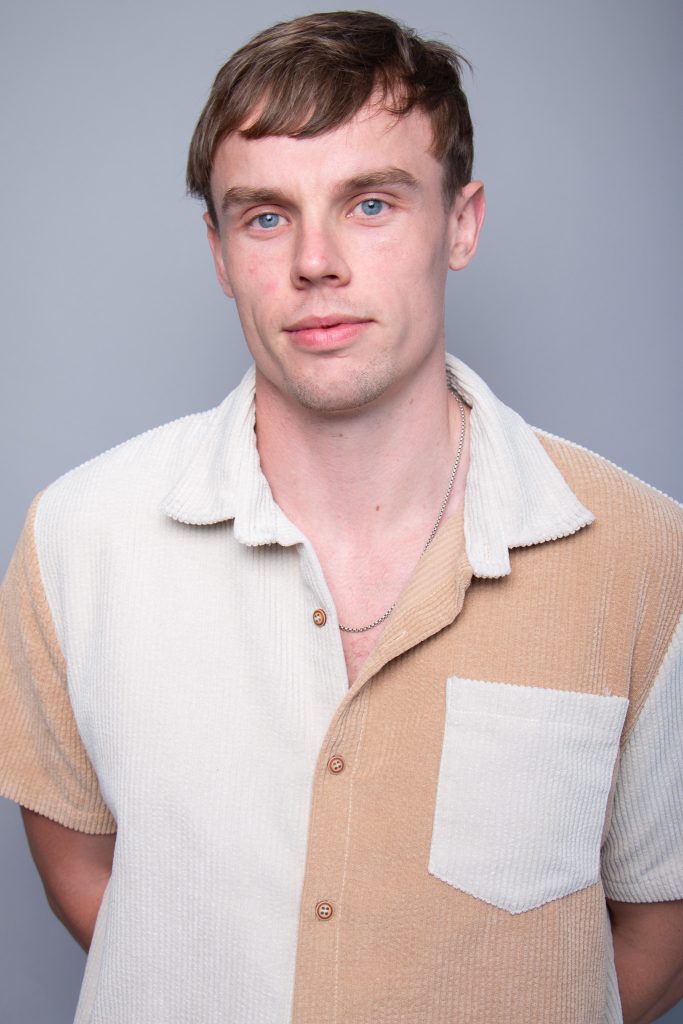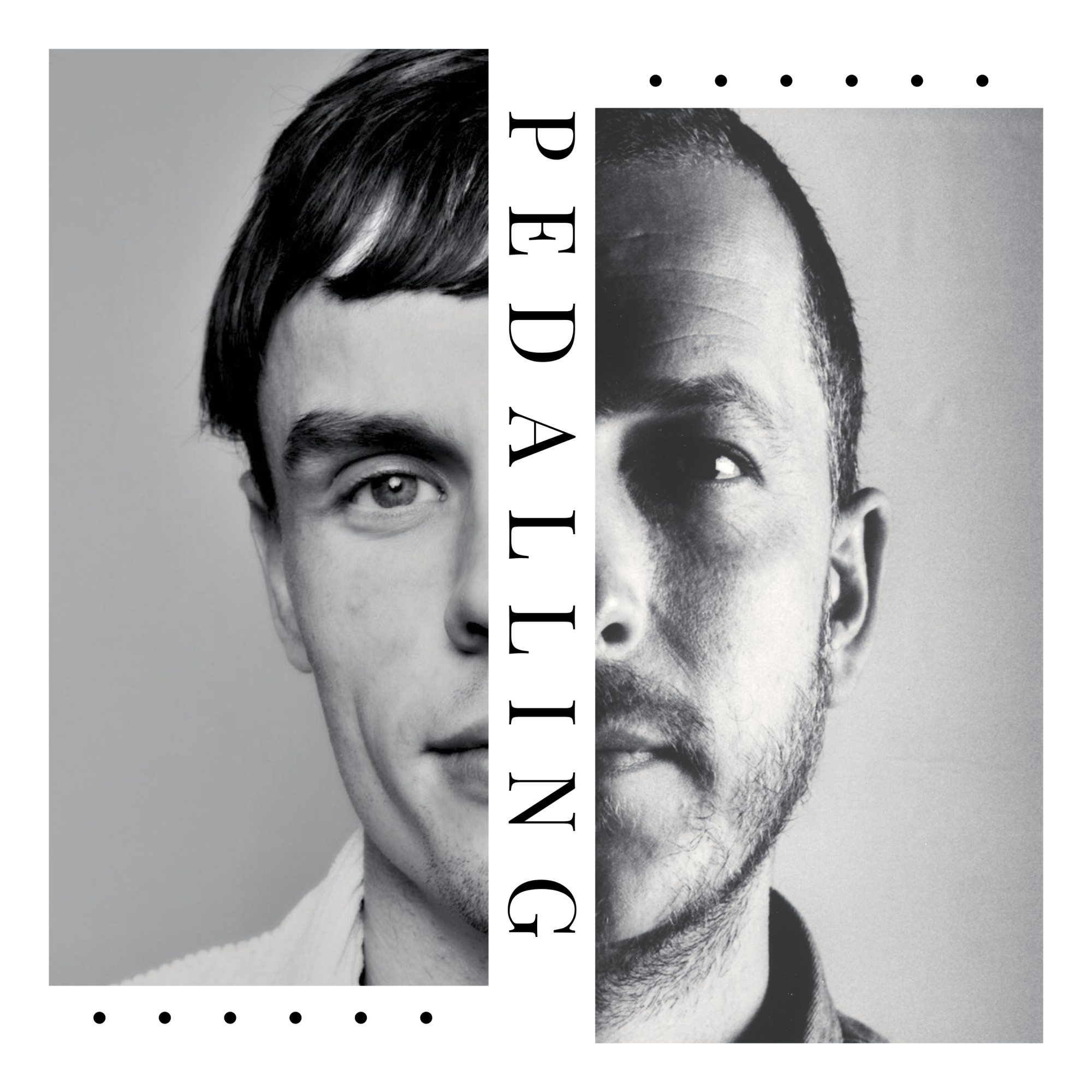Currently working under the name Throwing Snow, the Weardale-raised, Donegal-based musician and producer Ross Tones is no stranger to collaborations. Whilst best known as an electronic instrumentalist and working on soundtracks, Ross is also well-acquainted with collaborating with vocalists and lyricists, as exemplified by his side project, Snow Ghosts, with the singer-songwriter Hannah Cartwright.
Whilst browsing social media one day, Ross came across the work of the Corkonian writer, poet and mental health advocate Daragh Fleming. Ross was immediately drawn to Daragh’s writing and speeches, and specifically resonated with his laconic but significant reminder: “Just be sound.” Ross quickly got in contact with Daragh.

Courtesy of Amplify Agency
“I just came across him on social media, and just thought his message was really good and inspirational,” recalls Ross on what inspired him to reach out. “I had this song that I’d done for an architect and a cyclist… – just for her, personally, so she could have something motivational when she was riding up a hill – …called Philipa Batty, and this was a few years ago, and it just instantly came into my head when I heard his voice and his metre.
“So, I reached out to him, and within thirty seconds, he got back. Then I sent him the song, and within a week or so, it was kind of done. It was amazing. I’ve got really quick, instinctive relationships and collaborators, so it was kind of perfect.”
“When we first connected, I saw that Ross had followed me, and I went on his page, and I was like, ‘Oh, that’s interesting! A producer!’,” Daragh says, recalling his end of the story. “I was actually going into messages to message Ross and just say hello, because I thought what he was doing was cool, and then I saw that he had messaged me, so I was like, ‘OK, this is working very nicely!’ [Laughs]
“In terms of the music, Ross asked me if I would ever be interested in doing poetry to music, and I’ve always been interested in it. There’s a lot of artists that I really admire, like Le Boom and Kae Tempest, who do this kind of thing, and I just don’t have musical ability, in terms of producing instrumentals or anything. So, I was like, ‘Ultimately, yes. I just don’t have the means,’ and he was like, ‘I have the means! We can do this!’ [Laughs] So, it was very naturally serendipitous.”
The instrumentation that Ross sent Daragh was initially titled “Cycling.” Trusting Daragh’s instincts, Ross gave him complete carte blanche to write whatever he wanted. For Daragh, the track’s title and instrumentation invoked childhood memories of cycling around the beaches of Ardmore, Co. Waterford, during the summer.

Courtesy of Amplify Agency
“I remember I’d go down to Ardmore for eight weeks, and eight weeks as an adult is a very short period of time, but eight weeks when I was thirteen was infinite,” Daragh says when discussing the lyrics. “I think in those summers… – and I was only thinking about this this morning – …you were always present. Like, the things you worried about were the things in front of you. Like, I’d be worrying about, ‘Oh, did the lads leave the caravan park already and go to the shop without me, and do I have to cycle across…?’ [Laughs]
“Like, those were the concerns! They were all very immediate! Whereas now, it’s kind of like your concerns are kind of global, and it’s everything at once, and almost very little of your concerns are what’s right in front of you; it’s everything else. So, I suppose the melancholy comes in like you’re trying to recapture that simplicity and the bubble you’re in as a child, where the only things that I worry about are the things that are available to me to worry about, whereas, as an adult, we tend to worry about a lot of different things. So, there is, I suppose, a pining for a simpler time.”
Within a week, Daragh had sent Ross his vocal performance, which then inspired Ross to rearrange the instrumentation to fit the narrative. “I instantly got what it meant,” Ross recalls of hearing the lyrics for the first time. “I grew up in the countryside in the North East of England, riding my bike everywhere. Like, that was it. Then we used to visit the coast. I just got this hazy, VHS feeling, like I was looking back in time. It’s like the phrase ‘Rose-tinted spectacles’ or whatever; I saw it through that prism.
“Normally, what I would have done with a track like this is make it more for the dance floor, I suppose, because you want a big rise and a big drop and all that, but, narratively, I really like the music to work around the lyrics. So, there were bits like when you talk about the disco beat thumping and things like that, I just put two kicks to back that up.
“Then, instead of making it really big, I pushed everything further back, so it feels like a haze. Like, it felt like it was almost your first nightclub experience, and you were stood outside. So, the drums aren’t like you’re in the club; they’re more like the memory of you hearing that song from outside, so it’s sort of muffled. It felt like I was trying to reproduce that filter through time, but reflect it musically, if that makes sense.”
“That’s interesting,” reacts Daragh to hearing this. “Because it’s like the music, as a tool…it feels like a memory of a summer that went on forever, which is really cool.” “Yeah, yeah!” Ross enthusiastically responds, before continuing, “It doesn’t drop into something; it just kind of continues and grows a little bit, and it is kind of like, ‘I just want to think about that memory for a little while,’ rather than being taken on more of a journey. It’s more of a loop, so you can stay in that lovely memory, as opposed to, ‘Oh, we need to get to the next bit! We need to forget about that! Modern life! Move forward!’ It’s like, ‘No, no. Enjoy the reminisce,’ like.”
In the collaborative crafting of the track, “Cycling” organically metamorphosed into “Pedalling.” “Basically, Daragh said that this is called ‘Pedalling’,” Ross explains. “This is the same thing with collaboration, it’s like, ‘I don’t think we need to have this discussion between us about what it is.’ It’s not now the track that it was before – it’s something different, and something better, and Daragh’s put his own stamp on our collaboration, and he wants to call it ‘Pedalling,’ and I was just like, ‘It’s called “Pedalling.”’
“There’s a certain aspect of don’t over discuss things too much, because you can end up just either hurting someone or bruising someone’s ego, and that isn’t the thing you’re trying to do, unless you feel strongly that, ‘It’s got to be called “Cycling”!’, which, to be honest with you, is a ridiculous point, because it’s an instrumental track. [Daragh laughs] So, the poem is called ‘Pedalling,’ so we’re going to call it ‘Pedalling.’ That’s how I felt about it, anyway.”
“And for me, the poem was just called ‘Pedalling,’ because, obviously, I don’t ever name cycling, but it’s implied through And pedalled, and pedalled,” Daragh adds. “So, yeah, I called the poem ‘Pedalling,’ but that was never really with the surefootedness of, ‘The poem’s called “Pedalling,” so therefore the track is called “Pedalling.”’ I was like, ‘No, that poem’s called “Pedalling,” but the track can be whatever we decide to call it,’ but Ross liked ‘Pedalling,’ as well, so it was like, ‘OK. Easy.’”
The creation of “Pedalling” was a big step for Daragh, who was not only making his first foray into the world of music but was also surrendering an unprecedented level of autonomy over his words and entrusting them in the hands of Ross, who rearranged some of their placements to fit the track.
But both parties are very pleased with the end results, and the tango continues. “I instantly heard potential for another collaboration,” declares Ross. “I’ve just been sending Daragh music, and it’s been quite amazing. So easy. It just seems that we get each other somehow. So, I’ll send it, and Daragh will have something written or be inspired…I don’t know quite how he does it, but it just seems to work every time. It’s quite unbelievable!”
“Yeah, we won’t question the black box of it all!” laughs Daragh. “But, yeah, it’s been like that. Like, he sends me a new track, and then, for me, it’s like, ‘OK, here’s an opportunity to write something new to new music,’ and it’s specific to that music. Like, only one of the tracks we’ve done so far has come from a poem I had already written a couple of years ago, that’s already been published. […] They’ve all been quite varied. They’re all quite different, and they all have a fairly potent message in them, at the same time. So, yeah, it’s been really enjoyable, and smooth, and easy.”
Throwing Snow and Daragh Fleming’s track, “Pedalling,” is out today on all streaming platforms. You can keep up with Throwing Snow through the project’s website and with Daragh through his Linktree.
Tune into POSTBURNOUT.COM Interviews… tonight at 21:00 (IST) to hear this interview in full. Available on YouTube, Spotify, Apple Podcasts, and Amazon Music Podcasts.

Aaron Kavanagh is the Founder and Editor-in-Chief of Post-Burnout. His writing can also be found in the Irish Daily Star, Buzz.ie, Totally Dublin, The GOO, Headstuff, New Noise Magazine, XS Noize, DSCVRD and more.

 POST-BURNOUT
POST-BURNOUT